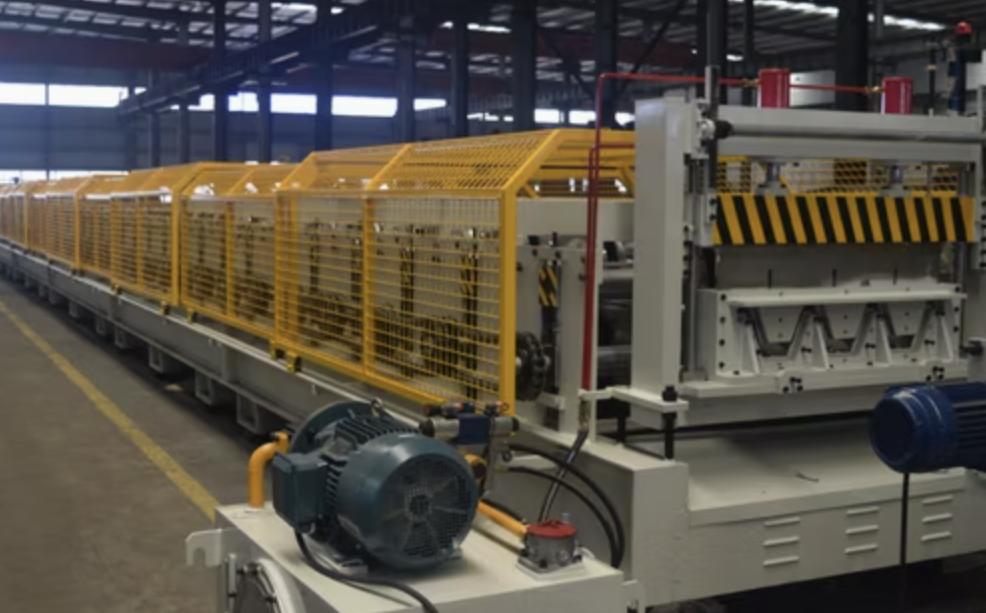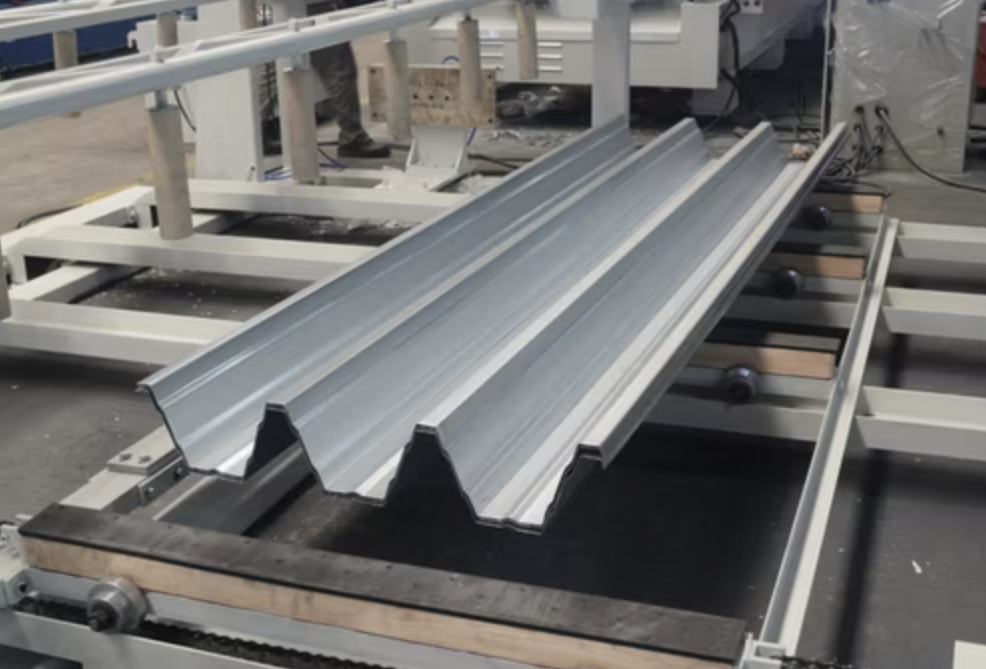To express an interest in this machine please submit the form below.

Not Sure What Machine You Need?
Select Your Profile, We'll Match It
Choose your desired profile drawing, and let Machine Matcher connect you with the best roll forming machine tailored to your needs.
Browse Profiles



Introduction
Deck roll forming machines are integral to the construction industry, producing metal decking profiles used in floors, roofs, and mezzanines. These machines create durable, high-strength decking profiles, meeting the needs of projects requiring both strength and lightweight materials. This guide explores deck roll forming machines, from specifications to maintenance, and answers some frequently asked questions.
Deck roll forming machines are specialized equipment designed to fabricate metal decking panels by progressively bending sheet metal coils into the desired shape. These machines are known for high precision, reliability, and the capacity to produce large volumes of decking in minimal time. Metal decking panels produced by these machines are often used in composite floor systems in buildings and other construction applications.
Here are typical specifications for deck roll forming machines:
Q1: What materials are compatible with deck roll forming machines?
A: Deck roll forming machines are primarily designed to work with galvanized steel, aluminum, and stainless steel coils. The material thickness typically ranges from 0.8mm to 1.5mm, depending on the profile and structural requirements.
Q2: Can deck roll forming machines create custom profiles?
A: Yes, many deck roll forming machines can be customized to produce unique profiles based on project needs. Consult with the manufacturer for custom roll designs and specific requirements.
Q3: How long does it take to set up a deck roll forming machine?
A: Initial setup can take anywhere from several hours to a full day, depending on machine size and complexity. Operators can typically switch between profiles in a few hours once the machine is configured.
Q4: What maintenance does a deck roll forming machine require?
A: Regular maintenance includes lubrication of moving parts, checking roller alignment, and inspecting the cutting and punching systems. Annual checks by a qualified technician can prevent costly downtime and prolong machine life.
Q5: How precise is the length cutting in deck roll forming machines?
A: Deck roll forming machines are highly precise, usually achieving a tolerance of ±1mm due to the hydraulic cutting system, which ensures consistent deck panel lengths.
Q6: Are there safety features on these machines?
A: Yes, most deck roll forming machines come equipped with safety guards, emergency stop buttons, and sensors to ensure safe operation. Regular safety checks are recommended.
Q7: What factors should be considered before purchasing a deck roll forming machine?
A: Important factors include desired production capacity, profile requirements, material compatibility, and available customization options. Additionally, consider power requirements and space availability in your facility.
Deck roll forming machines are essential tools for producing high-quality metal decking panels that meet industry standards. With various specifications and customization options, they cater to diverse construction needs, ensuring efficiency and structural integrity. Understanding machine features and proper maintenance will maximize the investment and guarantee long-term productivity.
Copyright 2026 © Machine Matcher.